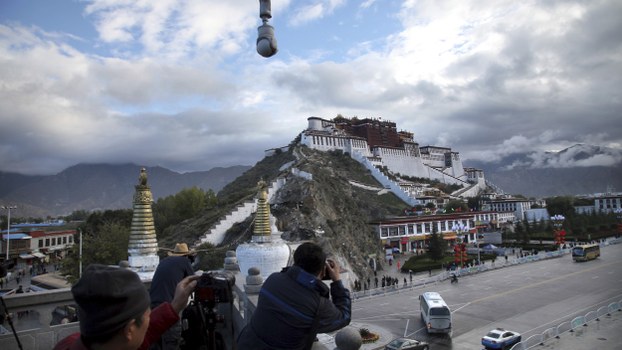Tibetet Segítő Társaság Sambhala Tibet Központ
Tibet Support Association Sambhala Tibet Center
székhely / telephely H-Budapest I. Attila út 123..
(00-36) 70 431 9343 (00-36)70 944 0260 (06-1)782 7721
sambhala@tibet.hu www.tibet.hu tibetpress.info
Facebook/Sambhala Tibet Központ Facebook/Tibett Segítő Társaság
MagnetBank/ 16200010-00110240
IBAN/HU94 16200010 00110240 00000000 SWIFT/HBWEHUHB
(1%) adószám/ 18061347-1-41
nyitva tartás/hétköznap 12.00-20.00 hétvégén előadás függő
» Retro» Tibeti művészet» Interjú» Levelek» Tibet Press» Tibet Press English» Dharma Press» Human Rights» Világ» Kína» Magyar» Ujgur» Belső-Mongólia » KőrösiCsoma» Élettér» Határozatok» Nyilatkozatok» tibeti művészet» lapszemle.hu» thetibetpost.com» eastinfo.hu» rangzen.net» ChoegyalTenzin» tibet.net» phayul.com» DalaiLama.com» vilaghelyzete.blogspot.com» Videók» Linkek» TibetiHírek» Szerkesztőség
A Kína nemzeti ünnepét jelző hivatalos események súlyosan korlátozzák a tibetiek napi életét Lhasában
2019. szeptember 30./RFA/TibetPress
Jelenleg csak angolul olvasható. Magyarul később.
eredeti cikk
Official celebrations to mark the 70th anniversary of the founding of the People’s Republic of China in Tibet’s regional capital Lhasa kicked off over the weekend under heavy security, leading to severe restrictions on residents’ daily lives, according to sources in the region.
According to the official China Daily, an event was held in front of the Potala Palace in Lhasa on Sunday in advance of National Day on Oct. 1 which was attended by “around 4,000 people, including government officials, farmers, herders, students, soldiers, policemen, and monks” carrying flags, flowers and ceremonial white scarves while they “sang the national anthem, listened to speeches and danced in unison.”
Tibetan sources in Lhasa, however, told RFA’s Tibetan Service that the festivities do not reflect the feelings of most residents, who chafe under Beijing’s repressive policies in the region, and had caused serious disruptions in the city.
“Security is very tight in Lhasa as the Chinese government ramps up official events for the celebration of National Day of the People’s Republic of China with pre-arranged guests,” said one source, who spoke on condition of anonymity to avoid reprisals by authorities.
“It has severely restricted every aspect of people’s movement and travel,” the source said.
Another Tibetan source in the capital called the celebration “staged … with the majority of attendees having been ordered by the Chinese government to show up.”
“Most of them were students and government workers,” said the second source, who also declined to be named.
A third Tibetan resident of Lhasa, who works as a driver, said the Sunday event was just one of “many official functions” to mark National Day in the city.
“Ordinary people’s movements are restricted and the square in front of the Potala Palace is closed off to traffic,” the driver said.
Members of the Tibetan community in exile told RFA that the 70th anniversary of the founding of China provides little to celebrate to Tibetans in the Tibetan region, where Chinese authorities regularly restrict their political activities and peaceful expression of ethnic and religious identity, and subject them to persecution, torture, imprisonment, and extrajudicial killings.
“For Tibetans, the celebration marking the 70th anniversary of China’s National Day is one of the darkest periods in Tibet’s history,” said Pema Jungney, the speaker of the Tibetan Parliament-in-Exile.
“[Seventy years of Chinese Communist rule] brought an avalanche of death, destruction, and imprisonment in Tibet. Whether it is from the perspective of human rights, religious freedom, language rights, or environmental issues, the negative impact of Chinese rule is unprecedented in Tibet’s history.”
Tsering Tsomo, director of the Dharamsala, India-based Tibetan Centre for Human Rights and Democracy (TCHRD), told RFA that while China’s government initially promised to ensure autonomy and other rights, “Tibetans remain deprived of any freedoms in their own homeland.”
“There has been more regression than progression in all aspects of Tibetan life under Chinese rule,” she said.
“China’s communist government care more about maintaining their power through putting out more policy propaganda than by listening to the grievances of the people and addressing their problems.”
Erosion of language and culture
Speaking to RFA, Karma Tenzin—a researcher on China’s education policy at the Dharamsala, India-based Tibet Policy Institute—said that over the past 70 years, China’s government implemented a variety of Sinicization policies that had effectively blocked usage of the Tibetan language and eroded Tibetan culture.
“If the current trends in Chinese policy that disadvantage Tibetans continue, efforts to preserve the Tibetan language will be irreparably damaged within 15 to 20 years,” he said.
“If the Chinese government truly cares about the welfare of the Tibetan people, it should review whether the Tibetan people’s freedom is being honored and their mental agony being alleviated.”
Washington-based International Campaign for Tibet (ICT) issued a statement on Monday saying that the past 70 years of Chinese rule in Tibet amounted to “subjugation and oppression for the Tibetan people.
“And after all that, China still lacks legitimacy in its rule over Tibet,” the group said.
ICT said that Beijing has destroyed Tibet’s monastic and cultural institutes and environment, as well as the traditions, culture and religion of the people, whose human rights are “consistently violated.”
The group called on China to work with the exiled Tibetan spiritual leader, the Dalai Lama, through his Middle Way Approach, which calls for true autonomy in the Tibetan region as part of China.
“If China really wants to show maturity and become a responsible member of the international community, it should have the courage to address the political problems in Tibet and respond positively to the Dalai Lama’s offer for a mutually beneficial negotiated settlement through the Middle Way Approach,” ICT said.
Reported by Lobsang Gelek for RFA’s Tibetan Service. Translated by Dorjee Damdul. Written in English by Joshua Lipes.
